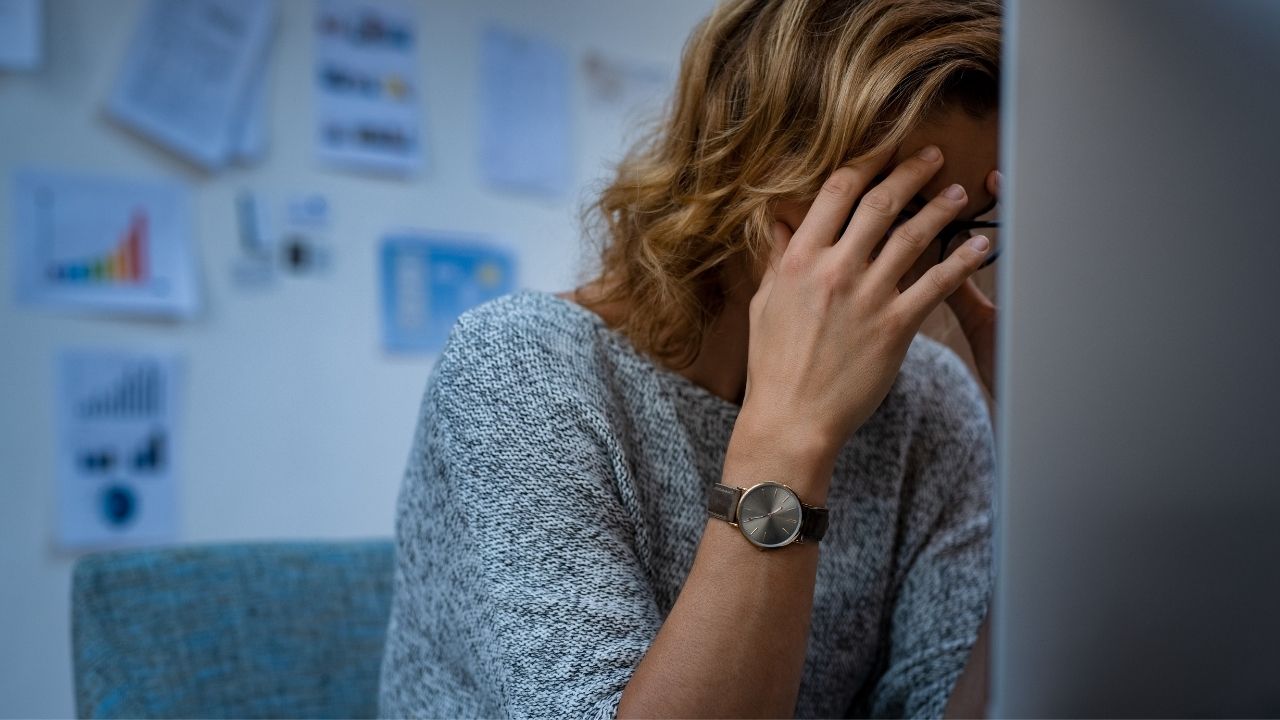- Putting on a ‘brave face’ at work isn’t doing your mental health any favors. So why do we do it?
- According to a new report, ‘pleasanteeism’ is one of the reasons we struggle to normalize speaking about mental health at work.
- With 26% of workers struggling to cope at work, companies must work to remove the barriers that exist to getting support for mental health.
We are struggling with our mental health. But this isn’t new — halfway through 2020, workers were already nearing a mental health breaking point.
A year later and mental health still hasn’t improved.
A recent research report commissioned by Lime Global Limited found that workers are suffering from deteriorating mental health, which is affecting resilience. But, as if it wasn’t enough that workers are suffering, many are doing so in silence.
The report ‘Keeping up Appearances: How Pleasanteeism is Eroding Resilience’ argues that the brave face culture is having a negative impact on mental health, personal resilience, and productivity.
Their data found that workers feel like “they have to hide their true selves or conceal their anxieties by putting on a brave face at work.”
That’s not doing anyone any favors, especially considering that a quarter (26%) of people are struggling to cope at work, while just over a third (34%) feel the same way about everyday life.
Key Findings from the Report
- 26% of workers say that they are struggling to cope at work.
- 34% of workers say that they are struggling to cope with everyday life.
- Over half (51%) of UK workers feel they have to put on a brave face for their colleagues.
- A quarter (25%) of UK workers are worried about having to be the best version of themselves when they return to the workplace.
- One in five (19%) are also worried about their stress being visible to others.
- Nearly six in 10 (56%) of women – compared to 45% of men – said they feel like they have to put on a brave face for their colleagues.
- Almost a third (29%) of women are more concerned about having to be their best self as they come back into the office, compared to one in five (20%) men.
The Toxicity of Pleasanteeism at Work
Why is it that people feel like they must put on a brave face at work? If everyone (or almost everyone) is having a hard time coping, why can’t we normalize speaking about mental health struggles at work?
Blame ‘pleasanteeism’.
Pleasanteeism is “the feeling that we always have to display our best self and show that we’re ‘okay’, regardless of whether we’re stressed, under too much pressure, or in need of help.”
Pleasanteeism is toxic.
It is undermining efforts to promote an open dialogue about mental health in the workplace and it can contribute to toxic workplace cultures.
Workers feel the need to keep up appearances in front of colleagues. Which is interesting, considering that many workers believe they can “easily” recognize similar struggles in their colleagues.
The research found that 40% of respondents noted that they could tell that other people in their organization were struggling with their mental health, with 37% going as far as to say they became concerned about the mental health of a colleague during the pandemic.
So, if workers are struggling and they can recognize they are not the only ones, why can’t they open up and confide in others at work?
Because stigma around mental health still exists, and many believe that opening up about their mental health struggles at work could impact their career prospects. Many also believe that their employer won’t be sympathetic or understanding to their struggles. But this is ironic, considering (almost) everyone is struggling.
Why Tackling Pleasanteeism Matters (especially for women and young workers)
Needless to say, keeping up appearances can have a negative impact on wellbeing; it can also negatively impact resilience—the ability to bounce back in the face of adversity or challenge, which is vital in times of struggle and difficulty (like say, a global pandemic).
Lack of resilience can impact our productivity as well, which impacts businesses’ bottom-line.
Women and young workers are bearing the brunt of pleasanteeism.
According to the report, “there are clear signs that women may be disproportionately impacted by the pandemic eroding resilience. It has been widely reported that women took on a larger share of childcare and unpaid work during lockdowns, being forced to juggle work and family commitments to an unprecedented degree.”
Lime Global Limited found that “nearly half (46%) of women believe their mental health has worsened during the pandemic, and not only that but they are over a third more likely to feel the consequences of low resilience – 41% reporting problems with sleeping, and 29% shutting themselves off from people, compared to 27% and 21% of men respectively.”
Similarly, 16- to 24-year-olds are also struggling significantly.
The report found that “56% of respondents in this age group said that low personal resilience impacts their ability to do their job effectively, in comparison to 44% of the general working population – with over a quarter (26%) admitting to frustrating consequences such as losing concentration or making a mistake at work.”
If companies want to contribute to bringing women back into the workforce and attracting top talent, then they need to meet workers’ needs, including their mental health needs.
The report found that people are eager to take control of their mental health, but that they don’t know where to start. To help tackle pleasanteeism, companies can start by removing the barriers that exist to getting support for mental health. Start by normalizing discussions around mental health struggles and work to get rid of the brave face culture.


















